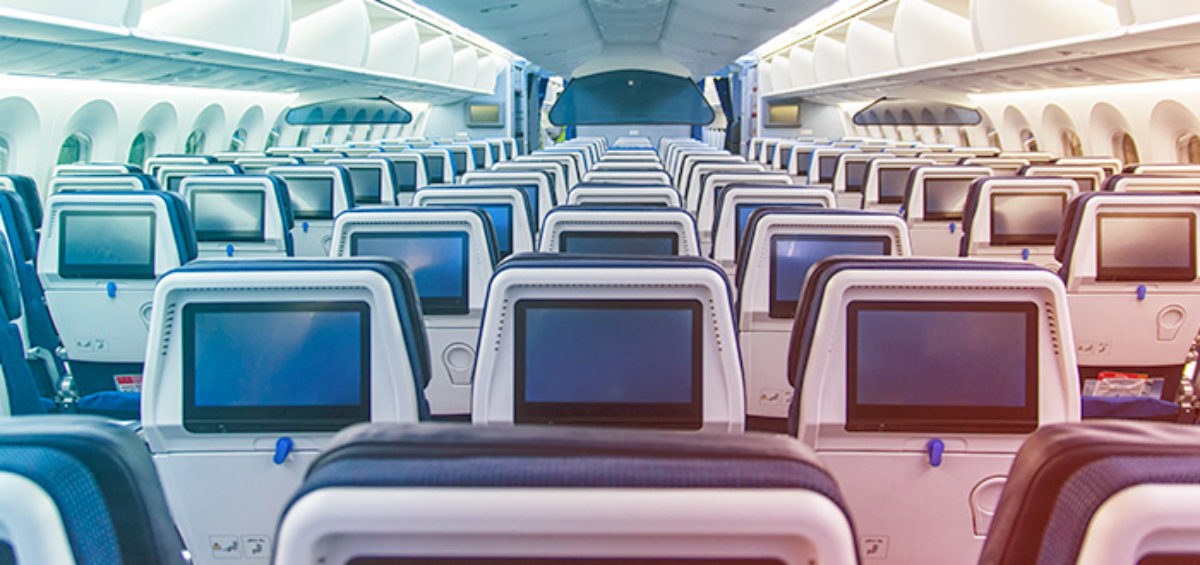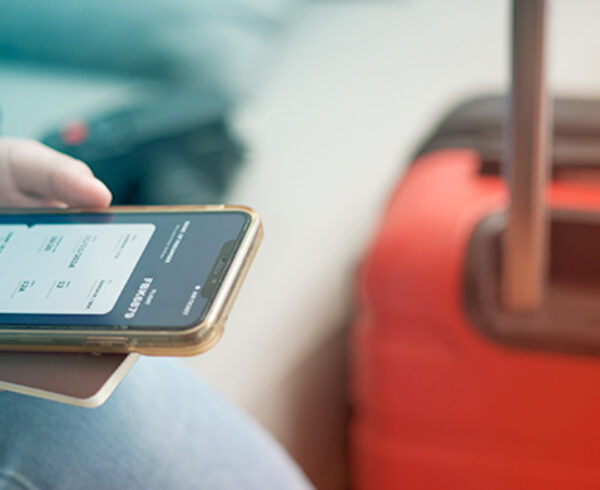This post was updated September 2019.
As a travel manager, you already know: The vast majority of commercial flights are oversold.
Why don’t most passengers consider airline overbooking? Because it rarely affects them. In 2018’s third quarter, only .045% of passengers flying on American carriers were denied boarding — and only .0013% of those denials were “involuntary.”
But, in some cases, instances of airline overbooking can spiral out of control. For example, in 2017, video of an unfortunate incident on a plane about to fly from Chicago to Louisville went viral on social media and landed United Airlines in public relations hot water.
United’s stock shed about $1.4 billion in value following the incident, and it would be nearly impossible to gauge damage to United’s brand. But is United the worst airline for overbooking?
Below, we take a look at the numbers. Because, as a travel manager, you want your team members on carriers and flights that are as efficient and risk-free as possible. It’s good for business and it’s good for the stress levels of your travelers when itineraries go efficiently and according to plan.
Read on to learn more about the history of overbooking and which airlines have been the best and worst about oversold flights in recent years.
A Brief History of Overbooking
Why do airlines overbook? Because it makes financial sense. Airlines first started taking advance reservations in the 1940s, which created the problem of no-show passengers. When passengers didn’t show up for their flights, those flights left at far less than capacity. And, when you operate an airline, an empty seat equals lost revenue.
Luckily for airlines, advance reservations came with a built-in solution to no-shows. Reservations back then were made by hand, but headquarters couldn’t community quickly enough with agents at regional headquarters and airports — which meant remote agents inevitably sold tickets for seats no longer available.
The one thing your travelers can do to assure their seats on flights is to get to the airport early.
The airline carriers were pleased to discover this problem wasn’t a problem at all — it was actually a solution to the challenge of no-shows. Tickets sold for unavailable seats nicely filled gaps left by no-shows — most of the time.
Did airline overbooking create problems back then? Of course. In 1953, a New York businessman blocked the tarmac and eventually took a seat on the front wheel of a plane after getting bumped from a flight out of Newark. But airlines carried on with overbooking anyway, all in the name of maximizing revenue.
Overbooking in the 21st Century
Overbooking is still very much legal and still very much in practice. How do airlines mitigate any uproar related to overbooking? They start by offering incentives and compensation.
Airlines have a lot to offer passengers bumped from flights. But it’s important to know what your team members are entitled to under the law. We recently wrote about passenger rights in oversold situations. Take a look at that post, and make sure your travelers are getting everything they have legal rights to when bumped from a flight.
When you’re a travel manager looking to get team members from one place to another without delay, it’s also important to know which airlines are best at accommodating passengers — and which are worst.
The Best and Worst Airlines for Overbooking
Different airlines have different processes, standards and approaches for bumping passengers on overbooked flights. Bumped passengers fall into two categories: 1) those who voluntarily choose to not board, taking incentives or denied boarding compensation instead, and 2) those who are classified as IDBs, or involuntarily denied boarding ticket-holders.
As part of its Passengers Denied Confirmed Space Report in 2018, the U.S. Bureau of Transportation Statistics looked at IDBs per million passengers boarded between April 2017 and March 2018. Here’s a look at American carriers, starting with the worst for overbooking and descending to the best:
1. Spirit Airlines — 78 IDBs per million passengers
2. Frontier Airlines — 55
3. Southwest Airlines — 41
4. Alaska Airlines — 28
5. American Airlines — 24
6. United Airlines — 13
7. Delta Air Lines — 3
8. JetBlue Airways — 2
As you can see, Spirit was the worst airline for IDBs in this time period, while JetBlue was the best. United, notorious for its headline-making IDB situation in Chicago, fell toward the bottom of the pack. Keep in mind also that, while some passengers are denied boarding involuntarily, others take compensation voluntarily and choose to rebook for later.
The Peak Time for Overbooking
As we enter the fall and the holiday season that stretches from Thanksgiving through the New Year arrives, be especially careful about overbooking. This is a time of year when vacations and family trips skyrocket, pushing airports to their capacities and taxing all airlines’ collective ability to accommodate passengers.
The one thing your travelers can do to assure their seats on flights is to get to the airport early. Many carriers start bumping passengers using the order by which they checked in. And, also, if your travelers do get bumped, make sure they know their passenger rights and that they demand their due compensation.
Again, check out our previous post on overbooking, flight compensation rules and what different airlines do when bumping passengers. When you arm your team members with the right information, they can better avoid getting bumped — and make the most of the situation if they do get bumped.
Discover the Common Sense Approach to Business Travel
If you can avoid putting your team members on overbooked flights, on flights that are often delayed or canceled, or on carriers that are known for a lack of dependability, you would do it, right? That’s just common sense.
At JTB Business Travel, common sense is the current that flows through everything we do. As a comprehensive business travel agency serving organizations large and small, we offer the knowledge, experience and advanced tools you need to maximize the value of your company’s investment in business travel.
Contact us today to learn more about how we help maximize its investment in business travel.














Leave a Comment